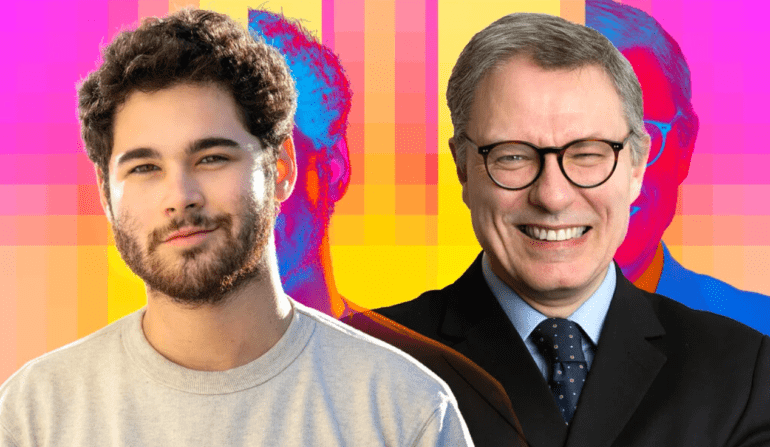- Student-developed AI chatbot, LuFlot, democratizes access to academic philosophy
- Collaboration between Yale student Nicolas Gertler and developer Rithvik Sabnekar
- LuFlot trained on the works of philosopher Luciano Floridi, offering comprehensive insights
- Features include in-text citations and the ability to synthesize information from various sources
- Reflects the broader trend of AI integration in education for enhanced learning experiences
Main AI News:
In today’s academic landscape, scholarly perspectives often remain locked behind paywalls, inaccessible to the broader public. Even when accessible, the language of academia can prove a barrier for non-experts. Nicolas Gertler, a first-year student at Yale College, recognized these challenges and saw an opportunity to bridge the gap using generative AI technology.
Teaming up with Rithvik “Ricky” Sabnekar, a skilled developer from Texas, Gertler embarked on a groundbreaking project to make the works of renowned philosopher Luciano Floridi more accessible. The result? The Luciano Floridi Bot, affectionately known as LuFlot, is a free AI-powered educational tool designed to engage with Floridi’s extensive body of work.
This innovative initiative marks a significant milestone, as it is the first time a chatbot has been trained on an academic’s literature and made available to the public for free. Gertler explains, “The idea was to democratize access to Professor Floridi’s work. LuFlot provides an AI-driven platform for much broader engagement with the ethical questions surrounding this transformative technology.“
Powered by AI, LuFlot swiftly responds to user queries with detailed and easily understandable answers drawn from Floridi’s extensive writings. Its ability to synthesize information from various sources enables it to uncover connections between works, offering insights even the philosopher himself might overlook.
Moreover, LuFlot’s interface includes in-text citations, ensuring transparency and allowing users to trace information back to its original source. While it politely acknowledges queries beyond its scope, it promptly addresses relevant questions, providing comprehensive responses supported by citations.
Gertler emphasizes the tool’s inclusivity, stating, “Anyone can visit the website, ask a question, and have a conversation with the founder of the philosophy of information.” However, users are reminded to critically evaluate LuFlot’s responses, acknowledging the potential for errors or biases.
Floridi himself commends the chatbot and its creators, acknowledging its role in fostering engagement with his work. He shares his own experience of consulting LuFlot for insights, marveling at its ability to draw connections across his vast body of work.
Dynamic knowledge at your fingertips
Gertler’s journey into AI was sparked by a fascination with its potential to benefit society. Engaged with youth-led organizations focused on leveraging technology for social good, he explores how generative AI can enrich educational experiences.
LuFlot emerged from a collaboration between Gertler and Floridi, spurred by their shared vision of leveraging technology to democratize access to knowledge. Their decision to develop a custom chatbot underscores their commitment to innovation, with Gertler praising Sabnekar’s technical prowess in bringing the project to fruition.
As part of Mylon Education, a startup dedicated to reimagining education through AI integration, LuFlot represents a step towards harmonizing human creativity with technological advancement. Gertler emphasizes that the goal isn’t to replace human agency but to enhance it, fostering deeper knowledge and critical thinking skills.
Floridi sees LuFlot as emblematic of a broader shift in education, where AI-driven tools offer novel approaches to learning and teaching. He envisions a future where chatbots trained on scholars’ works or course materials could revolutionize education, providing personalized and dynamic learning experiences.
Conclusion:
The emergence of LuFlot signifies a significant advancement in democratizing access to academic philosophy through AI technology. This innovation not only addresses the issue of accessibility but also highlights the potential of AI in transforming education. As the market continues to embrace AI-driven solutions for learning and knowledge dissemination, opportunities for further innovation and collaboration are likely to arise, reshaping the landscape of educational technology.

